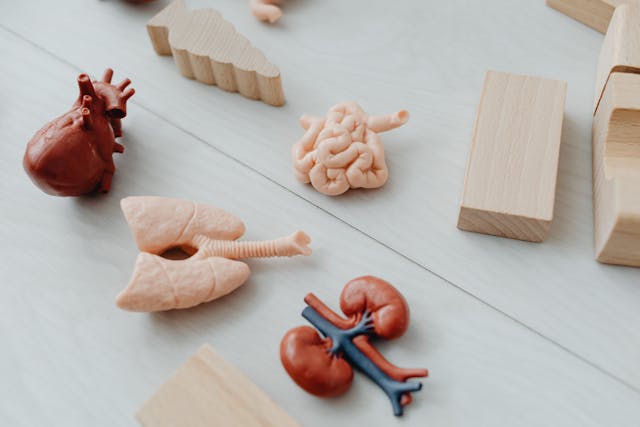It’s vital to look after our mental and physical health, and this is especially true as we age. The way we live our lives today determines whether we develop certain conditions and diseases later in life, such as dementia, strokes, and depression. In fact, according to extensive research, there are 17 factors that contribute to the risk of developing depression, strokes, and dementia. Thankfully, by making the necessary adjustments recommended in this article, you can lower your chances of developing any of the three conditions mentioned. Recent studies have revealed just how influential behavioral and lifestyle changes are for brain diseases related to aging.
Blood Pressure

When blood pressure is properly regulated, the strain on the blood vessels in your brain is reduced. This lowers your chances of having a stroke or developing vascular dementia. High blood pressure is regarded as dangerous because it can damage your arteries and limit the amount of oxygen flowing to the brain tissue. This, in turn, can affect both your cognition and mood. If you have high blood pressure, you may require medication and regular monitoring. You should also aim to reduce your salt intake and start exercising more regularly.
Body Mass Index

Having a healthy body mass index lowers your risk of developing conditions such as heart disease, diabetes, and hypertension. Excess weight can also contribute to inflammation and even affect your mental health due to hormonal imbalances. The best way to achieve your body mass index goals is to exercise regularly and eat healthily. This helps to support your brain function and emotional well-being while simultaneously reducing various systemic health risks.
Kidney Disease

Kidney dysfunction can result in the accumulation of toxins in your blood. This can affect brain function and increase your risk of cognitive decline and having a stroke. Kidney disease often goes hand in hand with diabetes and hypertension, which further amplify your risk. You can maintain healthy kidneys by staying properly hydrated, avoiding nephrotoxic substances, and going for regular screenings.
Read More: Higher Olive Oil Consumption Associated With Lower Mortality From Dementia, Study
Blood Sugar

Having high blood sugar levels increases your chances of damaging your nerves and blood vessels. This increases your likelihood of suffering from cognitive decline or having a stroke. Having diabetes also doubles your chances of developing Alzheimer’s or depression. You can achieve stable glucose levels by eating properly, exercising, and using medication if needed. This will help protect your brain cells and maintain your mood.
Total Cholesterol

It’s important to aim for balanced cholesterol levels as this prevents plaque buildup from occurring in your arteries. The risks of having high LDL levels include an increased risk of inflammation and impaired circulation. This can result in the development of mood disorders and eventual cognitive decline. If you want to stay within healthy cholesterol levels, cut out processed foods and consume heart-healthy fats.
Alcohol Consumption

Drinking alcohol comes with a range of potential health issues, such as brain cell damage, increased blood pressure, and mood regulation disruption. Consuming alcohol also increases your stroke risk and chances of developing long-term cognitive issues. Drinking moderately, or abstaining completely, will help improve sleep quality, memory, and emotional stability. This will help reduce the risk of developing depression, dementia, and stroke.
Read More: 5 Alarming Stroke Warning Signs to Watch for in Young People
Diet

The benefits of eating a diet rich in nutrients are a reduction in inflammation, vascular health support, and increased brain function. Diets such as the DASH and Mediterranean diets have been linked to a reduction in dementia, depression, and stroke risk. These diets are typically rich in fruits, vegetables, whole grains, and healthy fats. Poor nutrition, on the other hand, can potentially lead to mood instability and impaired cognitive function.
Hearing Impairment or Loss

If left untreated, hearing loss can gradually lead to depression, social isolation, and an increased risk of developing dementia. When there is hearing loss, your brain works harder to try and process sound. This diverts the necessary resources from thinking processes and memory. The use of hearing aids or dealing with hearing issues early on helps improve communication and engagement, thus protecting your cognitive and mental health.
Pain

Chronic pain is typically linked to a disturbance in sleeping patterns, reduced physical activity, and an increased rate of depression. Pain can also increase stress and inflammation, which could increase your stroke risk and lead to impaired brain function. You can help preserve your brain function over time by managing your pain through medication, therapy, and lifestyle changes.
Physical Activity

Exercising regularly has many benefits. Such as inflammation reduction, neuroplasticity support, and increased blood flow to the brain. Exercise also helps regulate your mood by boosting endorphin levels, improves metabolic health, and lowers blood pressure. Just exercising moderately for around 150 minutes every week can significantly reduce your risk of developing dementia, depression, or a stroke, no matter what age group you belong to.
Life Purpose

Another important factor that many people don’t even consider is one’s sense of purpose. A strong sense of purpose increases mental resilience and promotes cognitive engagement. It is related to a lower risk of developing depression and slower cognitive impairment. Purposeful living promotes healthy habits, social connections, and emotional well-being. Finding purpose in your life, whether through your job, hobbies, or relationships, has a significant impact on your brain health over time.
Read More: 10 Foods That Increase Stroke Risk and 10 That Protect Against It
Sleep Quality

Sleep is another very important factor when it comes to lowering your risk of developing certain diseases and conditions. Quality sleep helps the brain remove toxins from your body, construct memories, and regulate your mood. Sleep deprivation impairs these processes, elevating the risk of developing depression, stroke, and neurodegenerative conditions. Aim for between seven and nine hours of quality sleep every night. Good sleep hygiene, such as reducing screen time before bed and adhering to a consistent schedule, benefits both your mental and cognitive health.
Smoking

We all know that smoking has many negative effects on the human body. Smoking causes blood vessel damage, accelerates brain aging, and raises the risk of stroke and Alzheimer’s disease. It also smells really bad! It also leads to depression by disrupting neurochemical processes. Quitting smoking has both immediate and long-term benefits for your body and mind. There are many ways that you can quit smoking, including using alternative nicotine products for a while or joining a support program.
Social Engagement

Regular engagement with people stimulates brain activity, improves mood, and lowers stress. Loneliness is a significant risk factor for both depression and dementia. Meaningful interactions along with regular social engagement, such as volunteering, joining a group, or spending time with your family, help provide emotional support and stimulation, which are both essential for preserving your mental health.
Stress

Chronic stress causes inflammation and increases cortisol levels, which harms brain regions that regulate memory and mood control. It’s associated with both depression and dementia. Meditation, mindfulness, and breathing exercises are all stress management techniques that can help lower your cortisol levels, protect brain cells, and enhance emotional stability.
Cognitive Activity During Leisure Time

Just as with social engagement, what you do with your leisure time can impact your mental health. Reading books, solving crossword puzzles, learning new languages, and playing strategy games are all mentally engaging activities that strengthen neural pathways. This “cognitive reserve” prevents age-related decline and thus promotes mental health. Putting time aside for mentally stimulating activities is an effective and enjoyable way of maintaining mental sharpness and emotional resilience.
Depressive Symptoms

Depression can seriously affect an individual’s life and health. It can also have a knock-on effect on the other conditions mentioned above. Suffering from depression potentially increases your risk of stroke and dementia by affecting your brain structure. It also discourages healthy behaviors and habits. Early detection and treatment of symptoms, whether through therapy, medication, or lifestyle changes, can help to reverse damage and protect your brain. Your long-term cardiovascular and mental health depends on your emotional wellness, so be sure to try to treat or manage your depression when it arises.
Read More: Uncommon Risk Factors Linked to Rising Stroke Rates in Young Women

